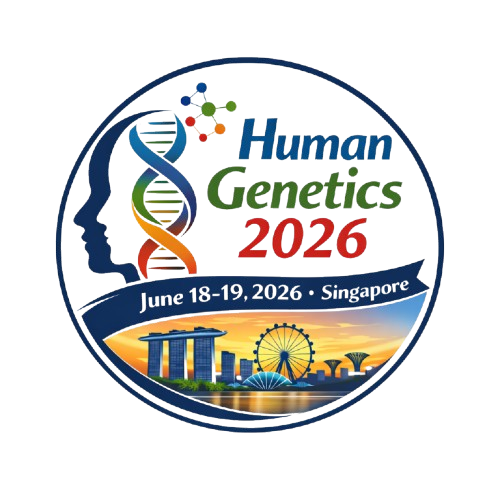Ethical & Social Implications of Gene Editing:
Many of the stem cells being studied are referred to as pluripotent, meaning they can give rise to any of the cell types in the body but they cannot give rise on their own to an entirely new body. (Only the earliest embryonic cells, which occur just after fertilization, can give rise to a whole other organism by themselves.) Other stem cells, such as the ones found in the adult body, are multipotent, meaning they can develop into a limited number of different tissue types. One of the most common stem cell treatments being studied is a procedure that extracts a few stem cells from a person's body and grows them in large quantities in the laboratory—what scientists refer to as expanding the number of stem cells. Once a sufficient number have been produced in this manner, the investigators inject them back into the patient. You could say that medicine up until now has been all about replacements. If your heart valve isn't working, you replace it with another valve, say from a pig. With regenerative medicine, you're treating the cause and using your own cells to perform the replacement. The hope is that by regenerating the tissue, you're causing the repairs to grow so that it's like normal.
Genetic disorders may or may not be heritable, i.e., passed down from the parents' genes. In non-heritable genetic disorders, defects may be caused by new mutations or changes to the DNA.
Related Conference of Ethical & Social Implications of Gene Editing:
21th World Congress on Tissue Engineering Regenerative Medicine and Stem Cell Research
16th International Conference on Human Genetics and Genetic Diseases
19th International Conference on Genomics & Pharmacogenomics
Ethical & Social Implications of Gene Editing: Conference Speakers
Recommended Sessions
- Genetic Disorders
- Biochemical Genetics:
- Cancer Genetics:
- Clinical Genetics:
- Cytogenetics:
- Developmental Genetics:
- Epigenetics
- Ethical & Social Implications of Gene Editing:
- Gene Therapy
- Gene Therapy and Genetic Counseling:
- Genetic Counseling:
- Genomic Medicine & Molecular Diagnostics:
- Genomics:
- Human Genetic Engineering:
- Human genetics
- Immunogenetics:
- Medical Genetics
- Nutritional Genomics:
- Oncogenomics and Cancer Heredity:
- Pharmacogenetics:
- Stem Cell Research and Therapy:
- Stem Cell Research:
- Stem cell Therapy:
- Molecular Genetics
- Population Genetics:
Related Journals
Are you interested in
- 3D Bioprinting, Organ Fabrication & Bioartificial Tissues - Stem Cell 2026 (Netherlands)
- Aging Biology, Longevity Science & Cellular Rejuvenation - Stem Cell 2026 (Netherlands)
- Artificial Intelligence and Computational Biology in Regenerative Medicine - Stemgen 2026 (Japan)
- Bioinformatics, AI Models & Predictive Regeneration - Stem Cell 2026 (Netherlands)
- Biomaterials and Nanotechnology in Regenerative Medicine - Stemgen 2026 (Japan)
- Cancer Stem Cells & Targeted Therapeutics - Stem Cell 2026 (Netherlands)
- Cancer Stem Cells and Oncology - Stemgen 2026 (Japan)
- Cardiac, Vascular & Musculoskeletal Regeneration - Stem Cell 2026 (Netherlands)
- Cardiovascular Regeneration - Stemgen 2026 (Japan)
- Clinical Translation of Stem Cell Therapies - Stem Cell 2026 (Netherlands)
- Clinical Trials and Translational Stem Cell Research - Stemgen 2026 (Japan)
- Commercialization, Biobanking & Industry Innovations - Stem Cell 2026 (Netherlands)
- Ethical, Legal, and Social Implications in Stem Cell Research - Stemgen 2026 (Japan)
- Ethical, Regulatory & Quality Control Frameworks - Stem Cell 2026 (Netherlands)
- Exosomes, Extracellular Vesicles & Cell-Free Therapeutics - Stem Cell 2026 (Netherlands)
- Future Trends: Organoids, Bioengineering, and Next-Generation Therapies - Stemgen 2026 (Japan)
- Gene Editing and CRISPR Technologies - Stemgen 2026 (Japan)
- Gene Editing, CRISPR Therapies & Regenerative Genomics - Stem Cell 2026 (Netherlands)
- Induced Pluripotent Stem Cells (iPSCs) and Reprogramming - Stemgen 2026 (Japan)
- Mesenchymal Stem Cells (MSCs) in Therapy - Stemgen 2026 (Japan)
- Regeneration in Neurodegenerative & Spinal Cord Disorders - Stem Cell 2026 (Netherlands)
- Regenerative Approaches in Diabetes & Metabolic Disorders - Stem Cell 2026 (Netherlands)
- Regenerative Dentistry and Craniofacial Applications - Stemgen 2026 (Japan)
- Regenerative Immunology & Immune Modulation - Stem Cell 2026 (Netherlands)
- Regenerative Medicine and Tissue Engineering - Stemgen 2026 (Japan)
- Stem Cell Banking and Cryopreservation - Stemgen 2026 (Japan)
- Stem Cell Biology and Cellular Mechanisms - Stemgen 2026 (Japan)
- Stem Cell Engineering & Cellular Reprogramming - Stem Cell 2026 (Netherlands)
- Stem Cells in Neurological and Neurodegenerative Disorders - Stemgen 2026 (Japan)
- Tissue Engineering, Biomaterials & Smart Scaffolds - Stem Cell 2026 (Netherlands)

